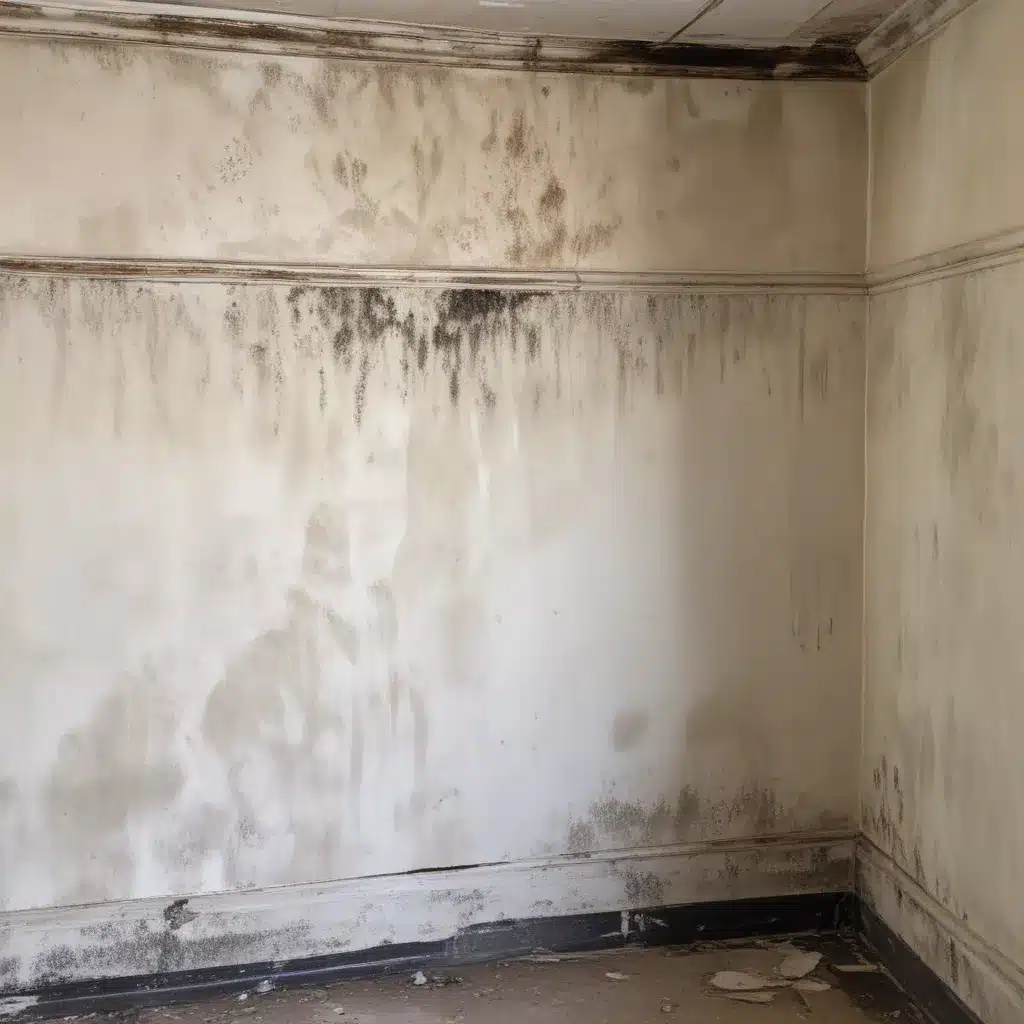
As an experienced water damage restoration specialist in the bustling city of Orlando, I’ve seen my fair share of mold-related challenges faced by landlords. Mold can be a persistent and insidious problem, wreaking havoc on rental properties and posing serious health risks to tenants. However, with the right knowledge and proactive approach, landlords can effectively tackle mold infestations and safeguard their investments.
Understanding the Mold Threat
Mold is a common occurrence in Florida’s warm, humid climate, and rental properties are particularly vulnerable. Whether it’s due to unattended plumbing leaks, poor ventilation, or lingering moisture from a recent storm, mold can quickly take hold and spread throughout a building.
The consequences of a mold problem can be severe, both for the physical structure and the health of occupants. Untreated mold can weaken building materials, compromising the integrity of walls, floors, and ceilings. More importantly, exposure to mold has been linked to a wide range of respiratory issues, allergic reactions, and even neurological problems. Ignoring a mold infestation is simply not an option for responsible landlords.
Navigating the Legal Landscape
Mold-related matters in rental properties are a complex legal minefield, and landlords must be diligent in understanding their obligations. In Florida, landlords are bound by the implied warranty of habitability, which requires them to provide tenants with a safe and livable environment, free from health hazards like mold.
As I’ve learned through my experience, failing to address a mold problem can expose landlords to significant legal risks. Tenants have the right to withhold rent or even initiate legal action if a landlord does not address a mold issue in a timely manner. Moreover, landlords may be held liable for any health issues or property damage caused by the mold.
To protect themselves, landlords should familiarize themselves with the relevant laws and regulations in their area. This includes understanding disclosure requirements, the landlord’s duty to maintain the property, and the tenant’s rights when it comes to mold. Staying up-to-date on the latest legal developments can go a long way in ensuring landlords avoid costly legal battles.
Proactive Mold Prevention
The best way to mitigate the risks of mold is to take a proactive approach to prevention. This starts with regular property inspections and maintaining a vigilant eye for any signs of moisture or water intrusion.
Identifying and addressing the root causes of moisture problems is crucial in preventing mold growth. This may involve fixing leaky plumbing, improving ventilation, or addressing any other issues that can lead to excess humidity or standing water. By nipping these problems in the bud, landlords can significantly reduce the likelihood of a mold infestation.
Equally important is educating tenants on their role in mold prevention. Encouraging tenants to report any signs of moisture or mold, and providing them with guidance on maintaining proper humidity levels and cleaning techniques, can go a long way in keeping mold at bay.
Responding to Mold Outbreaks
Despite best efforts, mold outbreaks can still occur, and landlords must be prepared to respond swiftly and effectively. The first step is to conduct a thorough inspection to assess the extent of the problem and determine the appropriate course of action.
In my experience, it’s vital to enlist the help of professional mold remediation experts when dealing with a significant mold issue. These specialists have the knowledge, equipment, and expertise to safely and effectively remove mold, addressing the underlying moisture problem and preventing future recurrence.
Landlords should also be aware of their legal obligations when it comes to mold remediation. In many cases, they may be required to disclose the mold problem to tenants, provide alternative housing during the remediation process, and even cover the costs of mold removal and any related property damage.
Navigating Insurance Claims
Mold-related issues can be a financial burden for landlords, but fortunately, many insurance policies provide coverage for mold remediation and associated damages. However, navigating the complex world of insurance claims can be a challenge.
As an expert in the field, I’ve learned that the key to successful insurance claims is thorough documentation and a proactive approach. Landlords should carefully document the extent of the mold problem, the steps taken to address it, and any related expenses. This documentation can be crucial in securing the necessary funding to address the issue.
Additionally, landlords should familiarize themselves with the specific terms and exclusions of their insurance policies. Some policies may have specific requirements or limitations when it comes to mold coverage, and it’s essential to understand these nuances to maximize the chances of a successful claim.
Fostering Tenant Relationships
Finally, it’s important for landlords to maintain a constructive and collaborative relationship with their tenants when it comes to mold-related issues. Tenants can be valuable allies in the fight against mold, as they are often the first to notice and report any signs of a problem.
By encouraging open communication and fostering a spirit of cooperation, landlords can ensure that mold issues are addressed promptly and effectively. This may involve providing tenants with educational resources on mold prevention, establishing clear communication channels for reporting issues, and working together to find solutions that prioritize the health and safety of all occupants.
Conclusion
Mold remediation in rental properties is a complex and multifaceted challenge, but with the right knowledge and a proactive approach, landlords can effectively protect their investments and the well-being of their tenants. By understanding the legal landscape, implementing robust prevention strategies, and collaborating with professional mold remediation experts and their tenants, landlords in Orlando can stay ahead of the mold curve and maintain the integrity of their rental properties.
If you’re a landlord in the Orlando area and are concerned about the potential for mold in your rental properties, I encourage you to visit https://orlandowaterdamagerestoration.net/ to learn more about our comprehensive water damage restoration and mold remediation services. Our team of experts is here to help you safeguard your rental properties and ensure a safe, healthy environment for your tenants.

